Regulation
Ex-SEC Official John Reed Stark to Testify on Crypto Enforcement

John Reed Stark, ex-head of the SEC’s Office of Internet Enforcement, is due to give testimony before the United States House of Representatives Financial Services Committee concerning the regulation of securities laws, particularly in the crypto market, on May 7th. Stark, who has an extensive securities law background, intends to illuminate the obstacles and needs of regulating the digital assets industry.
Stark argues that the SEC’s charges of overreach with “regulation by enforcement” are baseless, saying that what the critics call overreach is actually the SEC doing what it is supposed to do, which is to enforce the law.
SEC’s Approach to Crypto Regulation
In his prepared statement, Stark argues in favor of the current SEC regulatory position, underlining that the specifics of digital assets call for a strong regulatory approach to protect investors.
Stark asserts that the digital asset industry calls SEC Regulation by Enforcement simply enforcement. Thus, he highlights several high-profile crypto failures, such as FTX, that indicate the volatility and risks inherent in the crypto market. Stark argues that these kinds of cases are proof of the need for proper regulations to ensure the safety of investors and the dignity of the capital market.
Stark also provides a historical review of the SEC enforcement and states that the commission has continually changed its enforcement strategy to address new market technologies and concerns. His argument relies on the Howey Test, a standard set by a Supreme Court case in 1946 that has been used for years to determine what constitutes an investment contract in the context of U.S. securities law.
In addition, he believes that Howey Test principles are fully applicable to digital assets and refutes the assertion that the SEC has not given fair notice to the crypto industry.
Judicial Support for SEC’s Crypto Enforcement
The testimony stresses that federal courts have generally upheld the power of the SEC to consider digital assets as securities. Stark alludes to various court decisions where the judges supported the SEC’s actions against the crypto companies, making it clear that the SEC had provided adequate notice through its prior enforcement activities and public guidance. He refers to a judgment that the SEC’s position on crypto assets regulation aligns with the traditional securities law interpretations, providing required legal certainty and enforcement consistency.
In closing his speech, Stark recommends a tougher regulatory framework to address the precise risks digital assets pose. He also argues that they need to work together in creating rules, ensuring that any innovation is not hindered by heavy regulations while underpinning strong investor protection and market integrity.
At the same time, in a message on X, Stark expresses concerns over the current market of digital assets, which he calls a “post-apocalyptic anarchical free-for-all,” in which the majority of the cryptocurrency tokens’ intricacies are not thoroughly put under scrutiny and effectively communicated by those who push them forward.
Crypto Market Challenges and State Interventions
What is crucial to the narrative of Stark in the digital asset sector is that he argues that many in the crypto-verse are mistaken to think these assets do not need the sort of close supervision characteristic of traditional financial markets. He compares this situation to allowing unskilled people to perform complex surgeries, which is why many risks and irresponsibilities come from the lack of regulation.
Hmm, you are probably guessing right my friend — A sample of my thoughts this morning:
Let’s face it — most of the cryptoverse is not the Wild West, but more akin to a Walking Dead-like post-apocalyptic anarchical free-for-all. Promoters are marketing, and the investing public…
— John Reed Stark (@JohnReedStark) May 6, 2024
Additionally, Stark believes that with the SEC’s lack of active enforcement, the digital asset market will become a malpractice and fraud paradise, “drug dealers doing brain surgery.”
Therefore, Stark asserts that the activities in the cryptocurrency market trigger existing securities laws such as the ‘33 Act and the ‘34 Act- due to the nature of digital assets and their trading platforms.
He criticizes digital asset exchanges, brokers, and market makers because they employ terms that create the impression of the level of customer loyalty and protection, which is not true. Stark also says that this causes ‘pseudo masking of investment-related guarantees’ for investors, who have a wrong conception of the very nature of their investments and their inherent risks.
Read Also: Bitwise CIO Claims SEC Crackdown Is Favoring Coinbase
The presented content may include the personal opinion of the author and is subject to market condition. Do your market research before investing in cryptocurrencies. The author or the publication does not hold any responsibility for your personal financial loss.
Regulation
“Crypto Dad” Chris Giancarlo Emerges Top For White House Crypto Czar Role
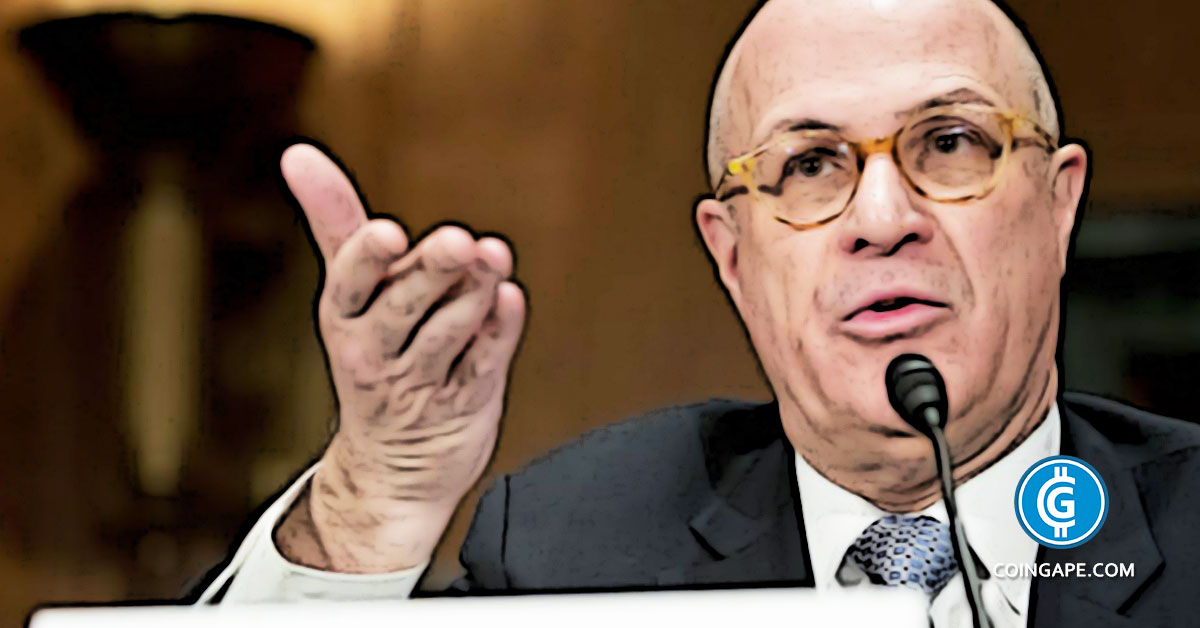
Chris Giancarlo, widely known as “Crypto Dad,” has emerged as the leading candidate for a newly proposed role of crypto czar in the White House under President-elect Donald Trump’s administration. The potential appointment underscores a strategic effort to advance crypto regulations and foster blockchain innovation in the United States.
This proposed position would be the first of its kind in the White House, aiming to bring clarity to the growing $3 trillion digital asset market. Chris Giancarlo, the former Chair of the Commodity Futures Trading Commission (CFTC), is known for his progressive approach to digital currencies and blockchain technologies.
Chris Giancarlo Leads Race for White House Crypto Czar Role Under Donald Trump
According to a Fox Business report, Chris Giancarlo is the top contender for the position of White House crypto czar, a role being considered by the Trump transition team to streamline crypto regulations and foster blockchain development.
As CFTC Chair from 2017 to 2019, Chris Giancarlo oversaw critical advancements in the digital asset space. This includes the launch of the first Bitcoin futures. He later co-founded the Digital Dollar Project, a nonprofit initiative exploring the potential of a U.S. central bank digital currency (CBDC). Giancarlo’s regulatory expertise and understanding of digital innovation position him as a key figure in shaping the future of the crypto sector.
The Trump administration aims to utilize this position to address industry concerns over the Biden administration’s perceived heavy-handed enforcement. The crypto czar would also collaborate with federal agencies to establish a framework for the $180 billion stablecoin market and enhance the overall regulatory landscape for blockchain and digital currencies.
Trump’s Strategic Approach to Digital Asset Policy
President-elect Donald Trump has expressed plans to make the U.S. a global leader in cryptocurrency and blockchain innovation. Part of this strategy includes appointing a crypto czar to advance policies to support the industry’s growth.
Trump has also proposed the establishment of a presidential crypto advisory council to address ongoing regulatory challenges. This initiative aims to align federal policies with industry needs, fostering a competitive environment for blockchain businesses. The council will explore the creation of a Bitcoin reserve as part of the administration’s broader crypto policy agenda.
The transition comes as current SEC Chair Gary Gensler announced his resignation effective January 20, 2025, coinciding with Trump’s inauguration. Gensler faced criticism during his tenure for his enforcement-driven approach to crypto regulations.
Amid speculation, Chris Giancarlo clarified that he is not pursuing the SEC Chair role. Giancarlo said in a recent statement,
“I’ve already cleaned up earlier Gary Gensler mess at the CFTC and don’t want to have to do it again.”
His focus remains on advancing crypto-friendly policies through a potential new role. According to the report, the “Crypto Dad” stated,
“I would be honored to be considered for the role.”
The creation of the crypto czar position could mark a pivotal moment in the evolution of U.S. crypto policy. With Chris Giancarlo leading the race, the industry anticipates advancements in crypto regulations under the new administration.
Disclaimer: The presented content may include the personal opinion of the author and is subject to market condition. Do your market research before investing in cryptocurrencies. The author or the publication does not hold any responsibility for your personal financial loss.
Regulation
UK to unveil crypto and stablecoin regulatory framework early next year


- The UK will introduce unified crypto regulations, including stablecoins, in early 2025.
- New rules aim to simplify oversight and avoid restrictive staking classifications.
- Labour government aims to compete with EU’s MiCA rules and US pro-crypto policies.
The United Kingdom is set to introduce a comprehensive regulatory framework for cryptocurrencies, stablecoins, and crypto staking services in early 2025, marking a pivotal shift in its approach to digital assets.
The announcement was made by the Economic Secretary to the Treasury Tulip Siddiq at City & Financial Global’s Tokenisation Summit in London on November 21.
Initially slated for December 2024, the regulatory rollout was delayed due to the change in government following the election of Prime Minister Keir Starmer’s Labour administration in July 2024.
The upcoming UK crypto regulatory framework
The upcoming framework consolidates regulations for crypto assets into a single, overarching regime, a decision Siddiq described as “simpler and more logical.”
The framework aims to provide clarity in a rapidly growing sector that has faced uncertainty in the UK.
Stablecoins will receive distinct treatment under these regulations, as their functionality does not align with existing payment services rules.
Siddiq highlighted that staking services would also avoid being designated as “collective investment schemes,” a classification that could impose burdensome restrictions.
UK aims to align with the global crypto regulatory landscape
The UK government’s renewed focus on digital asset regulation comes as it seeks to align with global developments. The European Union’s Markets in Crypto-Assets (MiCA) regulations will be fully enforced by the end of 2024, offering regulatory certainty that has positioned Europe as an attractive market for the crypto industry.
Meanwhile, the US, under President Donald Trump’s administration, has adopted a markedly pro-crypto stance, including the establishment of a White House “crypto czar” and SEC Chair Gary Gensler’s planned departure in January 2024.
The Labour government has shown its intent to catch up with international competition. In September 2024, it introduced a bill recognizing NFTs, cryptocurrencies, and carbon credits as property.
The new regulatory push reflects the UK’s ambition to regain credibility as a crypto hub while addressing criticisms of the Financial Conduct Authority’s perceived stringent oversight.
By delivering a robust, streamlined framework, the Labour government aims to bolster the UK’s standing in the multibillion-dollar crypto industry.
Regulation
Gary Gensler To Step Down As US SEC Chair In January
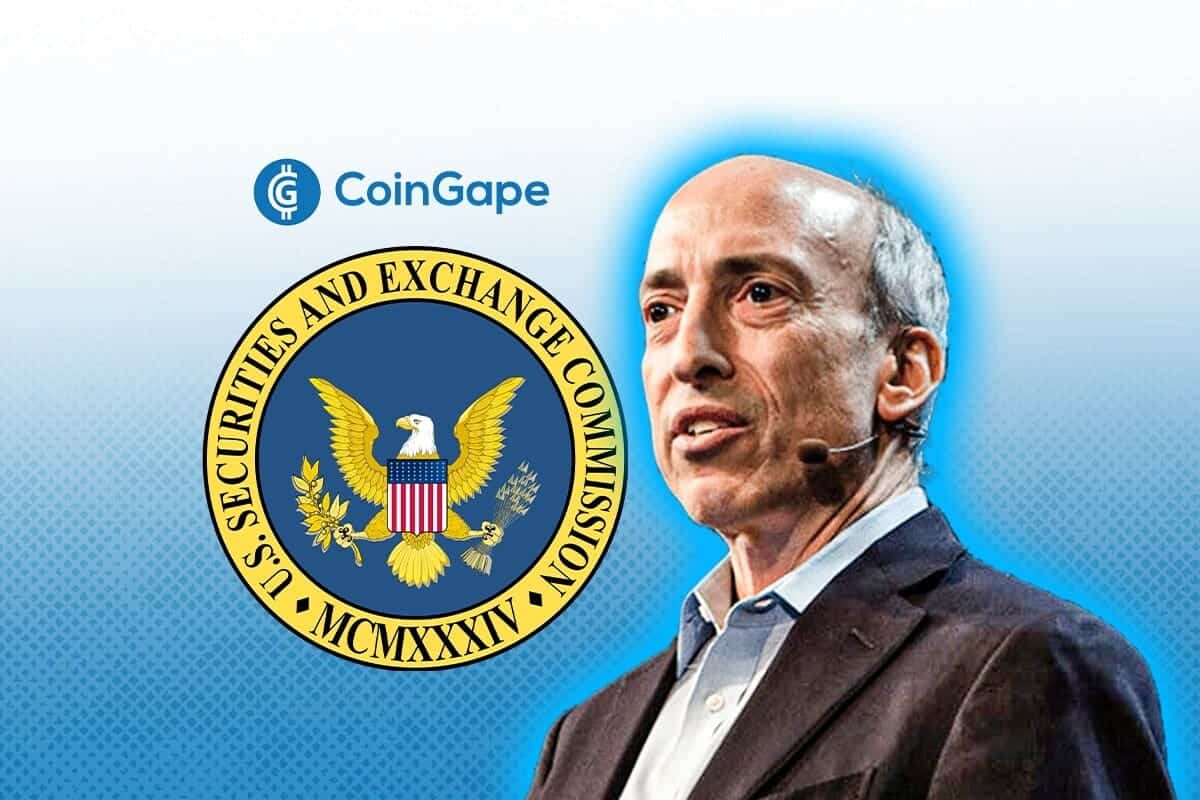
In a recent development, the US Securities and Exchange Commission (SEC) announced that Gary Gensler will step down from his position next year. This follows calls for Gensler to resign since Donald Trump won the US presidential elections.
Gary Gensler To Step Down As US SEC Chair
The US SEC announced in a press release that Gary Gensler will depart the Agency on January 20, 2025. The US SEC Chair also confirmed this development in an X post. Interestingly, this comes on the same day that Donald Trump will be inaugurated as the 47th president of the United States.
Following the announcement, Gensler also used the opportunity to reflect on his time at the Commission. He remarked that it has been an “honor of a lifetime” to serve alongside those at the SEC. He also thanked President Biden for the opportunity to serve in the position. Gensler has been the US SEC Chair since April 2021. During his time, he has spearheaded several litigations against the crypto industry.
This includes the long-running legal battle with Ripple, which Gensler took over from his predecessor Jay Clayton, which bordered on whether XRP was a security. Up till now, the Agency continues to reiterate this ‘digital asset securities’ claim.
Disclaimer: The presented content may include the personal opinion of the author and is subject to market condition. Do your market research before investing in cryptocurrencies. The author or the publication does not hold any responsibility for your personal financial loss.
-

 Market21 hours ago
Market21 hours agoSouth Korea Unveils North Korea’s Role in Upbit Hack
-
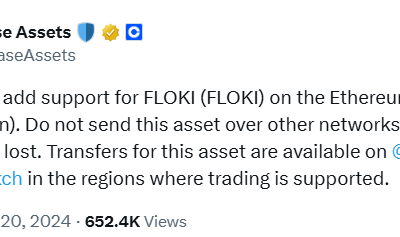
 Altcoin23 hours ago
Altcoin23 hours agoWhy FLOKI Price Hits 6-Month Peak With 5% Surge?
-

 Bitcoin16 hours ago
Bitcoin16 hours agoMarathon Digital Raises $1B to Expand Bitcoin Holdings
-

 Market16 hours ago
Market16 hours agoETH/BTC Ratio Plummets to 42-Month Low Amid Bitcoin Surge
-

 Market15 hours ago
Market15 hours agoSEC Moves Toward Solana ETF Approval Amid Pro-Crypto Shift
-

 Altcoin19 hours ago
Altcoin19 hours agoSui Network Back Online After 2-Hour Outage, Price Slips
-

 Altcoin18 hours ago
Altcoin18 hours agoDogecoin Whale Accumulation Sparks Optimism, DOGE To Rally 9000% Ahead?
-

 Altcoin21 hours ago
Altcoin21 hours agoVitalik Buterin, Coinbase’s Jesse Pollack Buy Super Anon (ANON) Tokens On Base


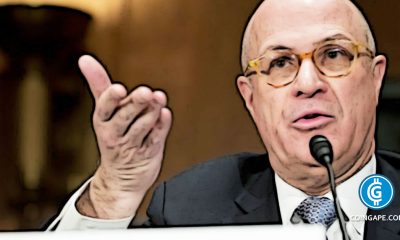

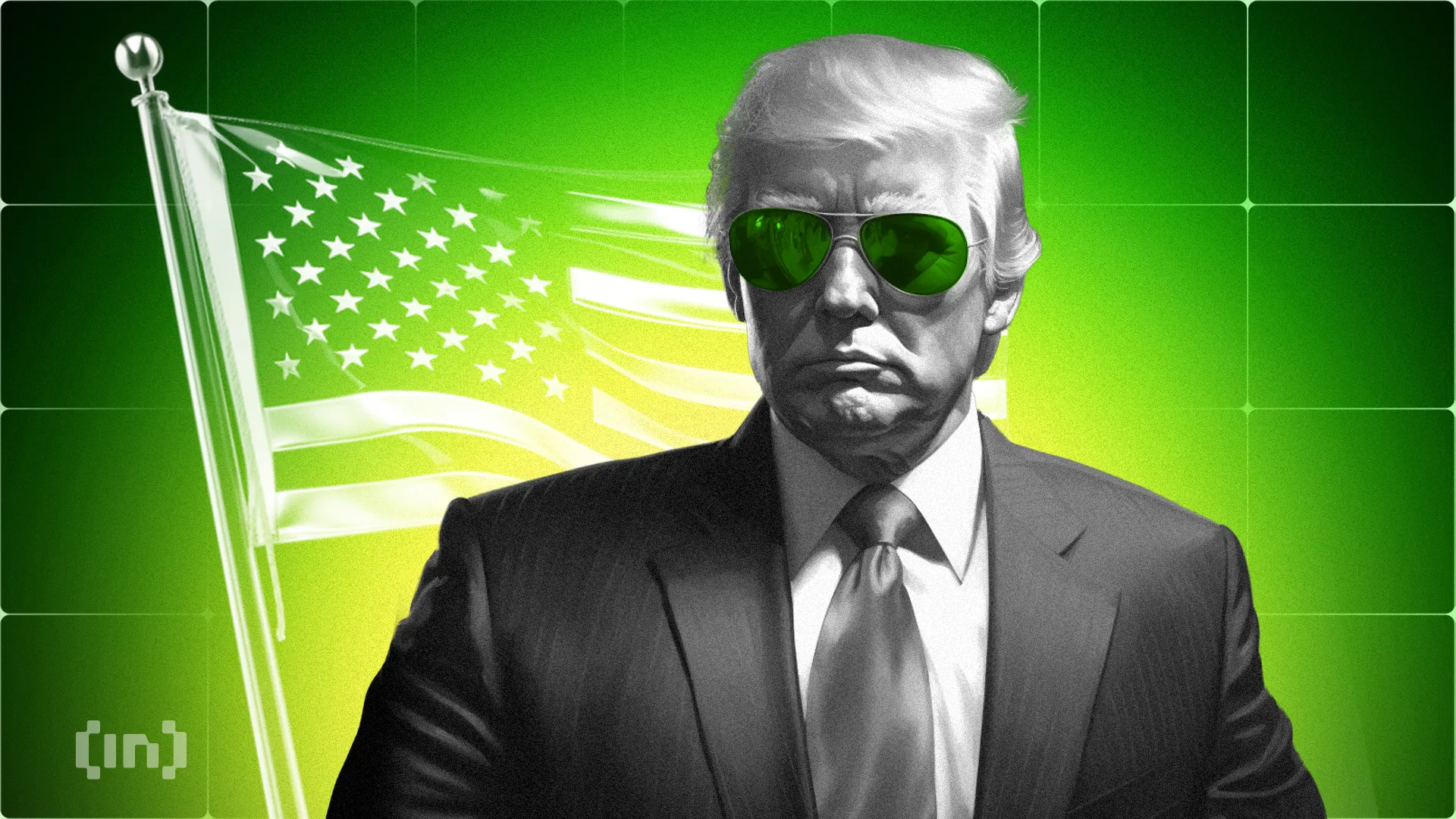





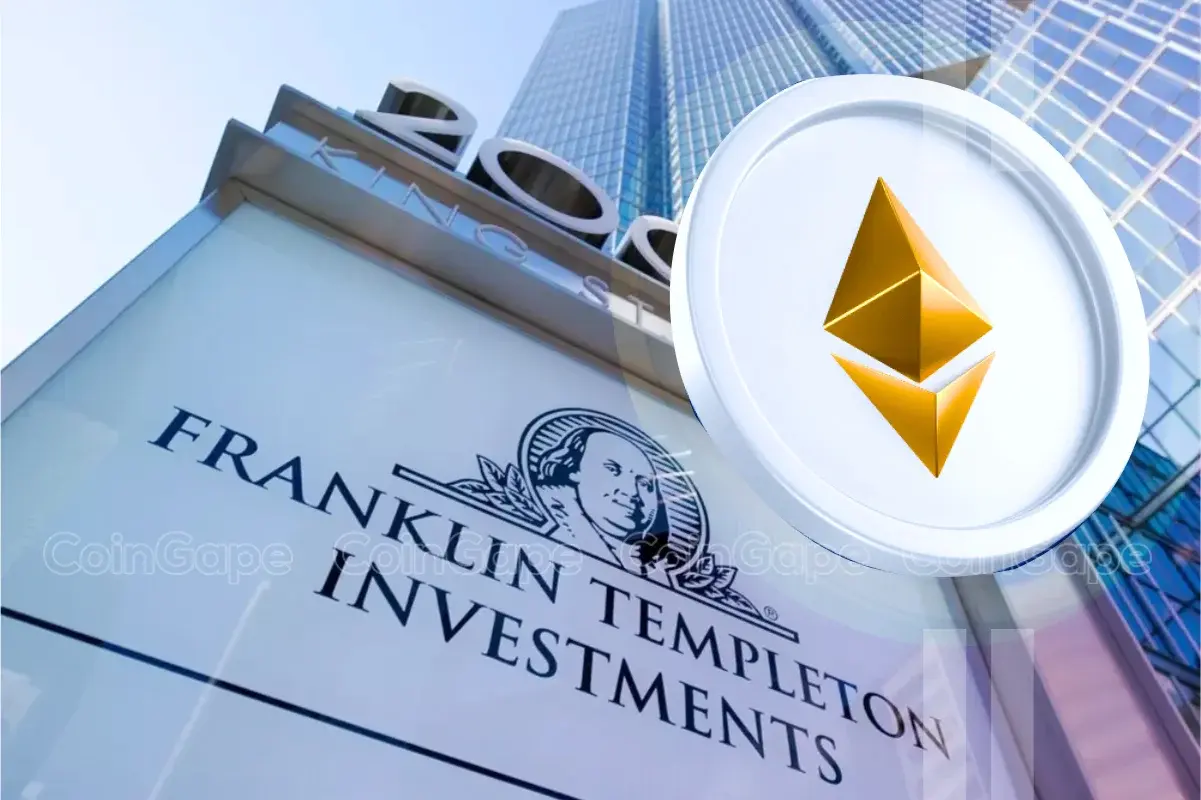












✓ Share: